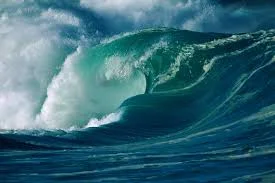A common misconception about this election is that all the hatred, violence, and vitriol we saw on the campaign trail, and continue to see legislated by the current administration, is anything especially new or bad in this country. The men and women currently in power are not historical anomalies by any metric, they're just singularly abhorrent extensions of American history. The problems that plague marginalized communities in this country are nothing new, either: people of color, women, queer people, Muslims, immigrants, the working-class-all of these groups have suffered in this country, under dozens of past administrations. The only difference now is that the current one is disgustingly unabashed regarding their intentions.
The forces of history govern nearly everything we believe and do as citizens of this country. Because of the historical narratives we inherit, whether they're true, false, or erased, we believe the world we inhabit to be a certain, unfixed way. But there's always room for us to change, and to grow. That's the whole point of stories, both historical and fictional: to change the way an audience absorbs the world around them. We're social animals, and we love a good story more than anything else. There is a kind of power in reclaiming a history, in shedding light on old stories to make room for new ones, and now, more than ever, we need to understand how we reached this point, and how we can break old cycles to stop this from ever happening again. America has no one story, no one culture, no one history, that makes it what it is. That's the whole point of it. Instead of propping up the false history that culminated in our current White House, I can choose to raise up stories that are not considered part of the historical and cultural canon we cling to. I can use fiction, poetry, essays, or whatever other illegible scribbles I can manage to help rewrite, or at least deepen, a reader's understanding of what being American means. I can use my privilege to tell stories other than the ones I'm just "used to," reshaping the space I inhabit into a platform for those endangered by this administration to tell their story, to let the world know their testimony is valid. And I can tell my own stories as a means to redefine how I engage with this administration, how I protest, how I listen, how I interact, how I fight. I built myself, my entire life, out of the stories I was told, but now I have the obligation to tell new stories, to fight against stories that are "set in stone," and to help give untold stories room to breathe.
At protests over the next 1,400 days or so, you'll probably hear variations of the phrase "silence is violence." As writers, this refrain takes on a deeper, even more desperate meaning. We can't stop telling stories, we can't stop trying to engage with the reality of the history we're living. On some level, we don't have a choice.
By turning to our collective history as an act of self-preservation, we can find a way to make a future that we want, one that the generation coming after us deserves.
~Matthew Apadula










